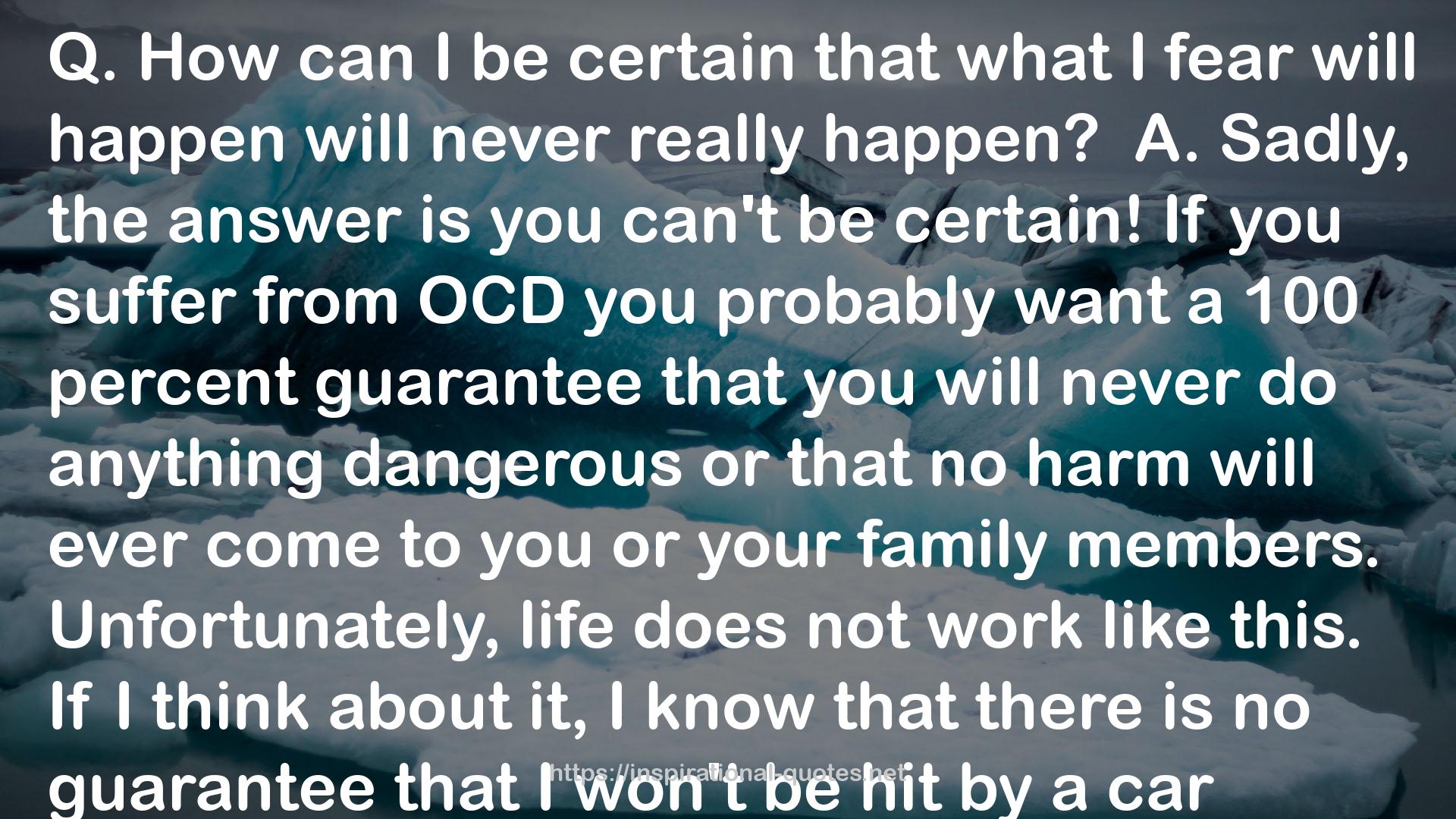1
" Q. How can I be certain that what I fear will happen will never really happen?
A. Sadly, the answer is you can't be certain! If you suffer from OCD you probably want a 100 percent guarantee that you will never do anything dangerous or that no harm will ever come to you or your family members. Unfortunately, life does not work like this. If I think about it, I know that there is no guarantee that I won't be hit by a car coming home from work today - but somehow my brain automatically accepts the very small chance of this happening and so permits me to go on living my life.
More than two thousand years ago the Buddha (a great psychologist besides being a religious teacher) warned that one of the key things that makes us suffer is that we always want more than we will actually get - whether what we want is material like gold and jewels, or (my addition) in the case of OCD, more certainty than you will ever achieve. Thus the solution the Buddha might have offered you in northern India those thousands of years ago might have been something like this: "To stop suffering you must learn to accept that you will never achieve as much certainty as you want, no matter how much you pursue it; so it is up to you to choose: Either accept this truth and live your life happily, or fight against this truth and continue to suffer."
Let me say it again for emphasis: you will never be certain that you won't act on the urges you have, or that the terrible things you fear will happen will not actually happen - but I can assure you that the odds of these things actually happening are small enough that it is not worth wasting your life trying (in vain) to get 100 percent certainty. Better to trust in yourself, your religious beliefs, or in evolution having prepared us well for surviving in this world.
If evidence from brain studies better helps to convince you this is true, brain imaging studies of OCD sufferers now suggest that there really is something wrong with their "certainty system"; whatever automatically lets someone without OCD feel that things are OK does not function correctly in the OCD sufferer's brain (who then tries to convince himself that everything is OK, eventually becoming tired and frustrated when he cannot use other brain functions to achieve 100 percent certainty). "
― ,
